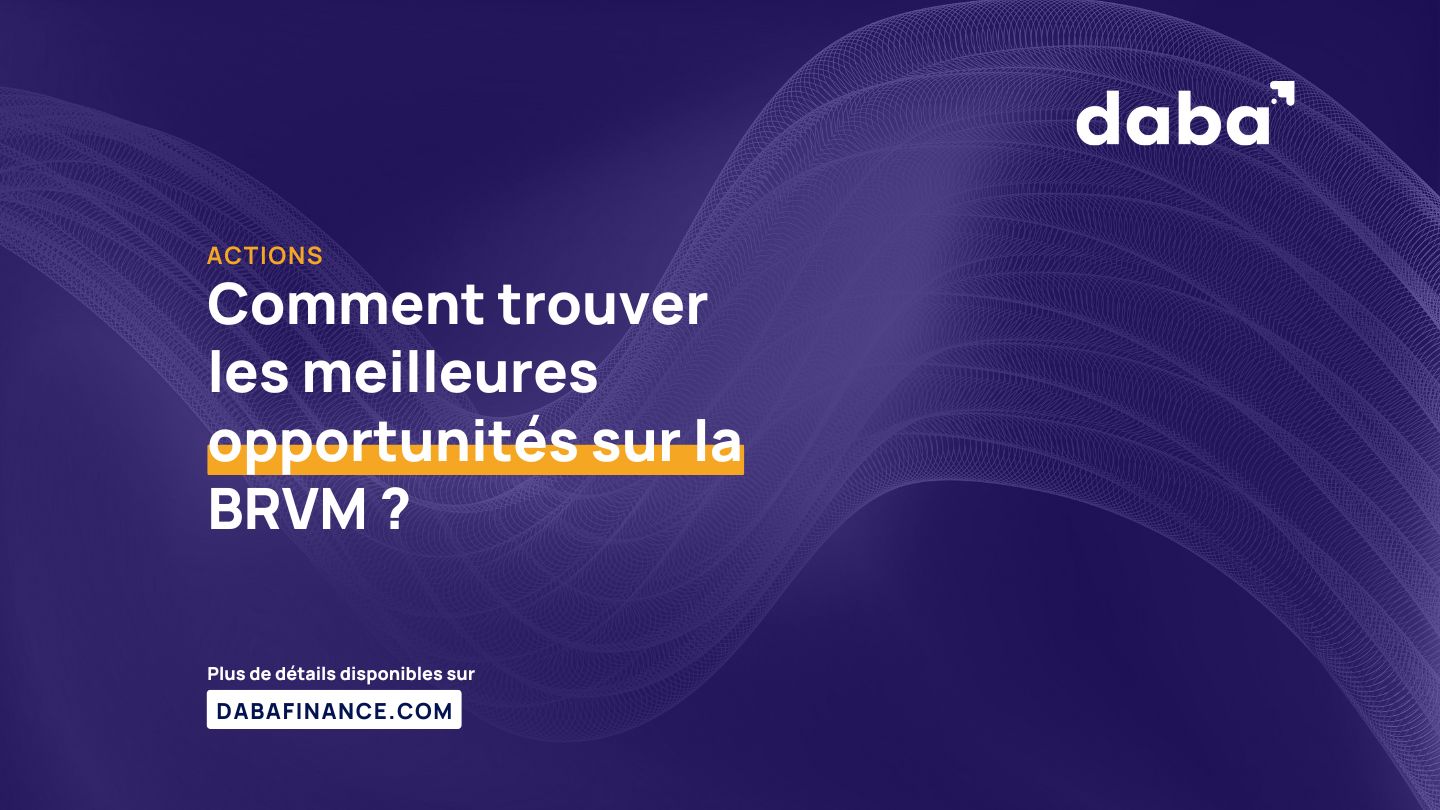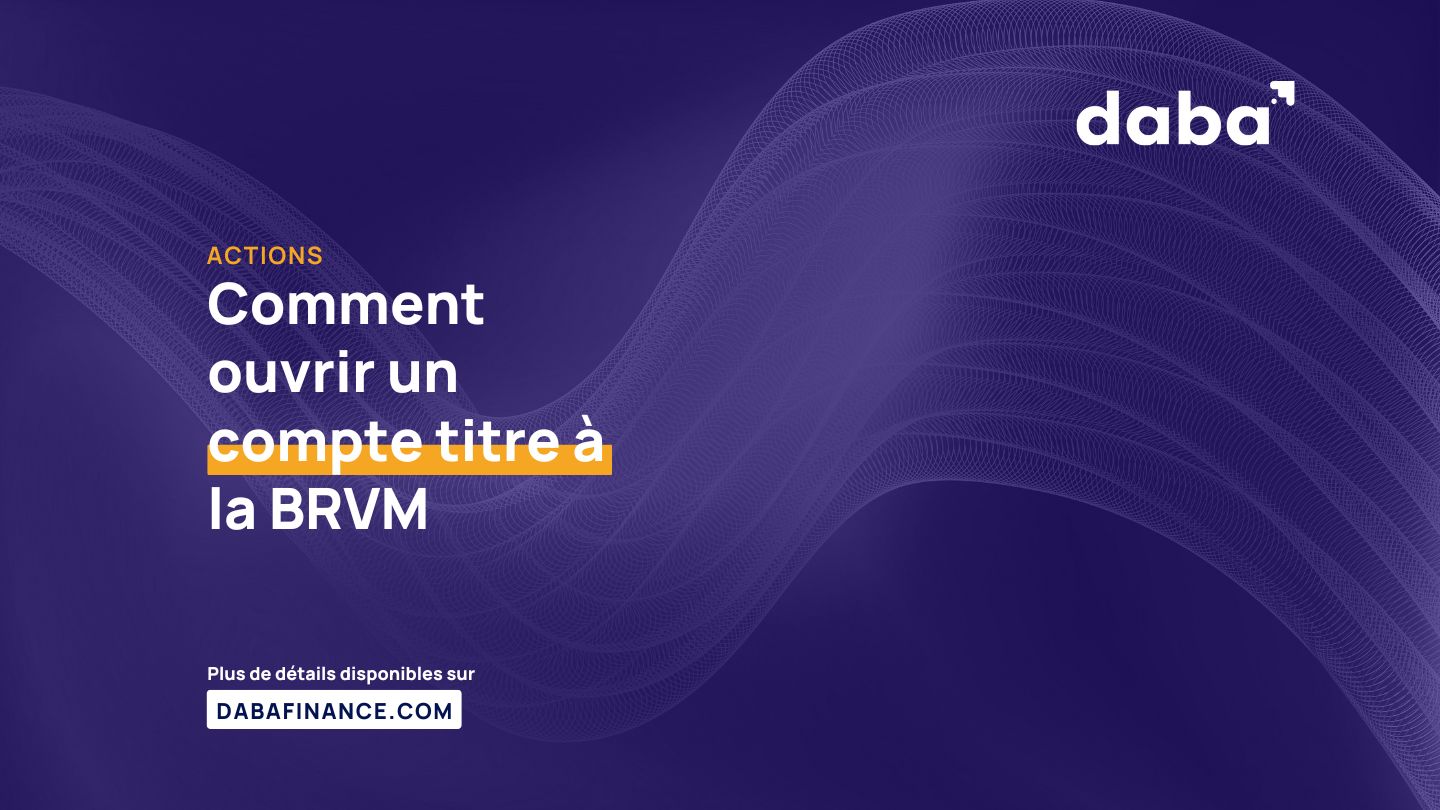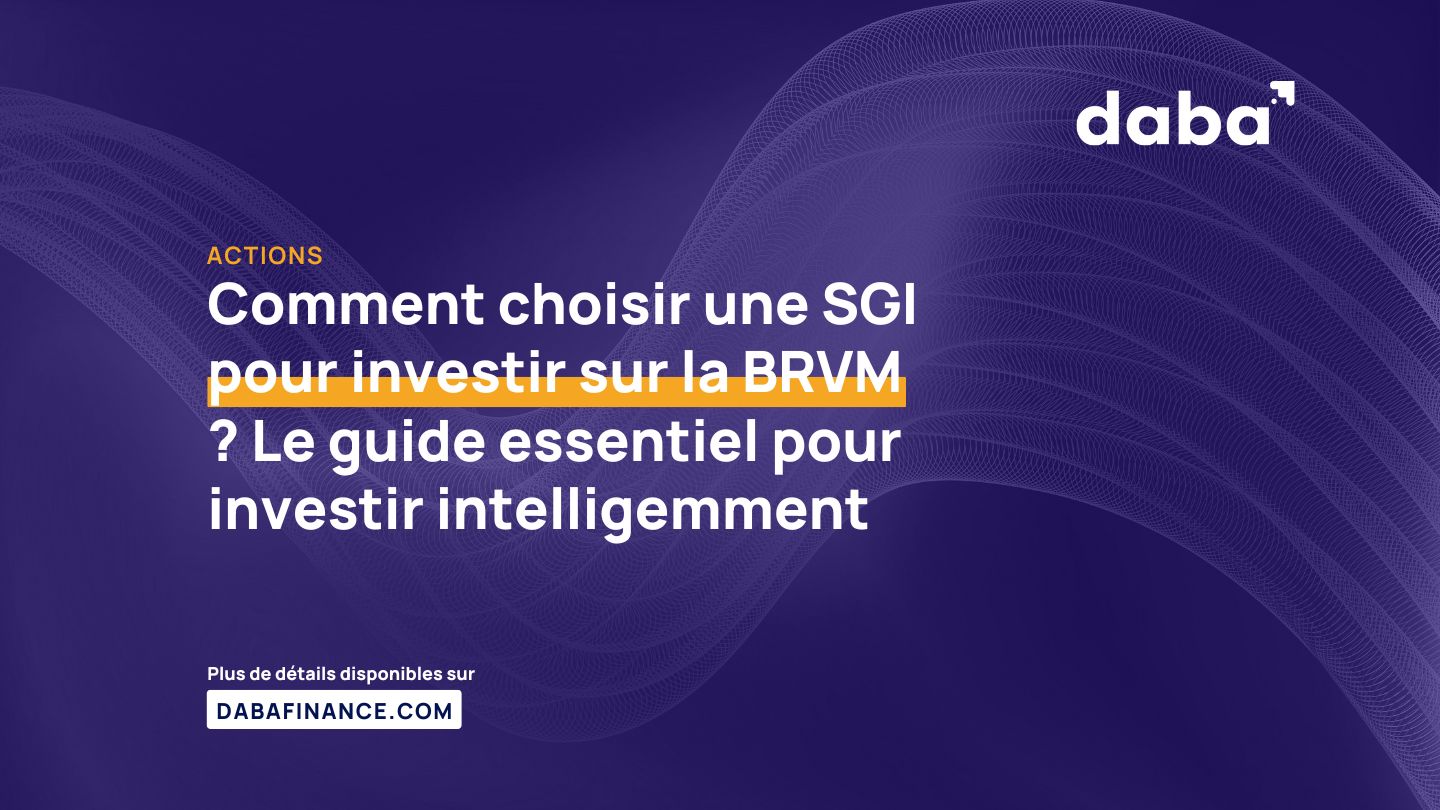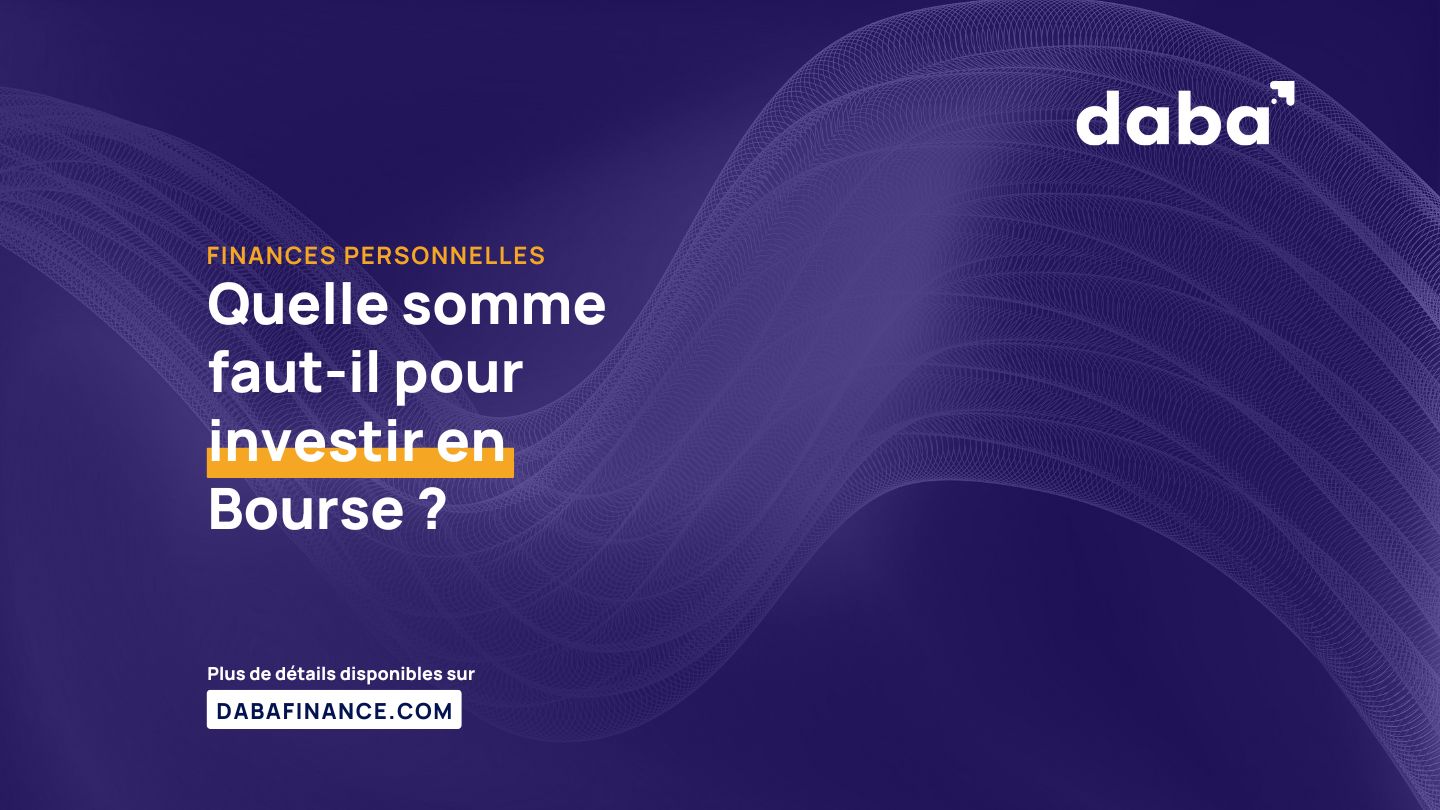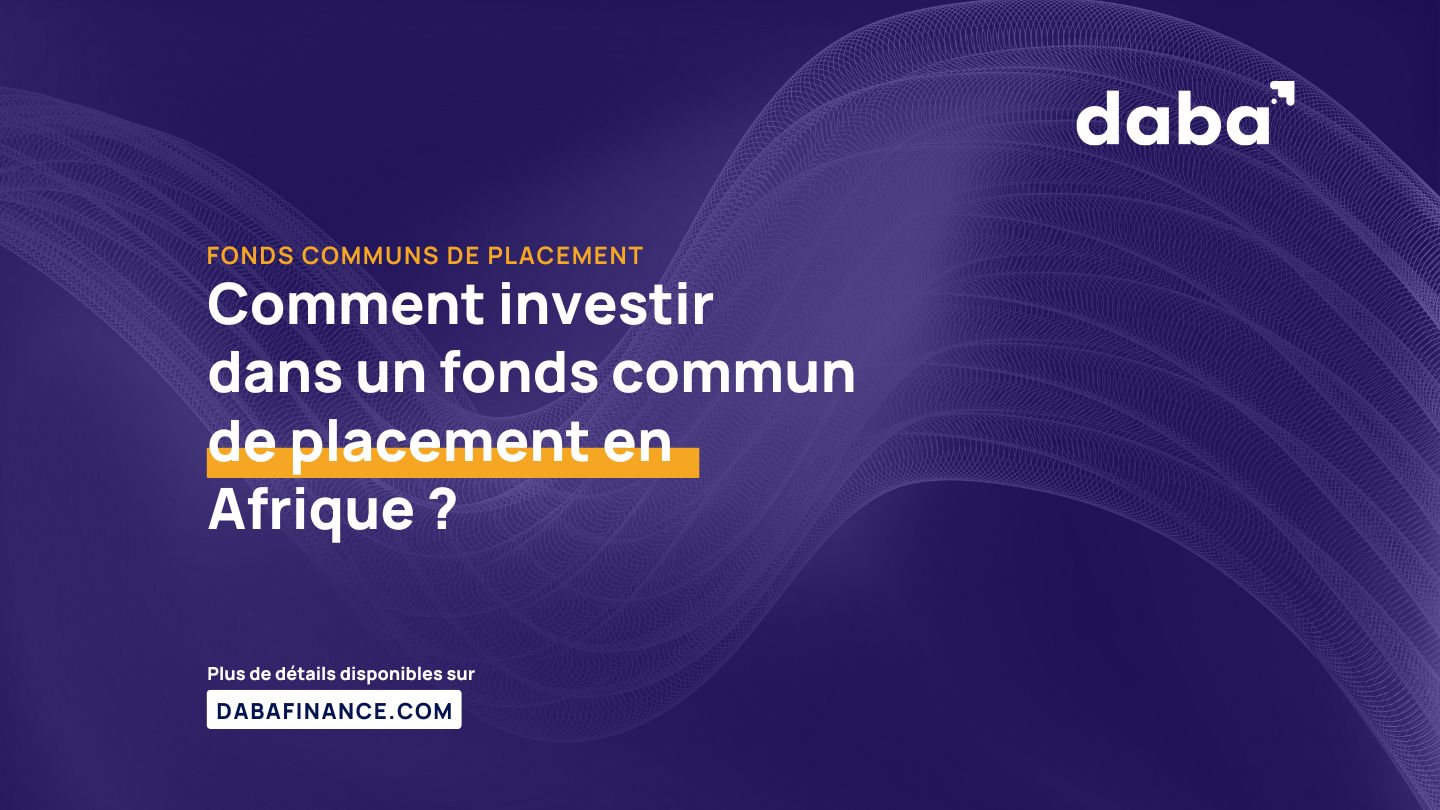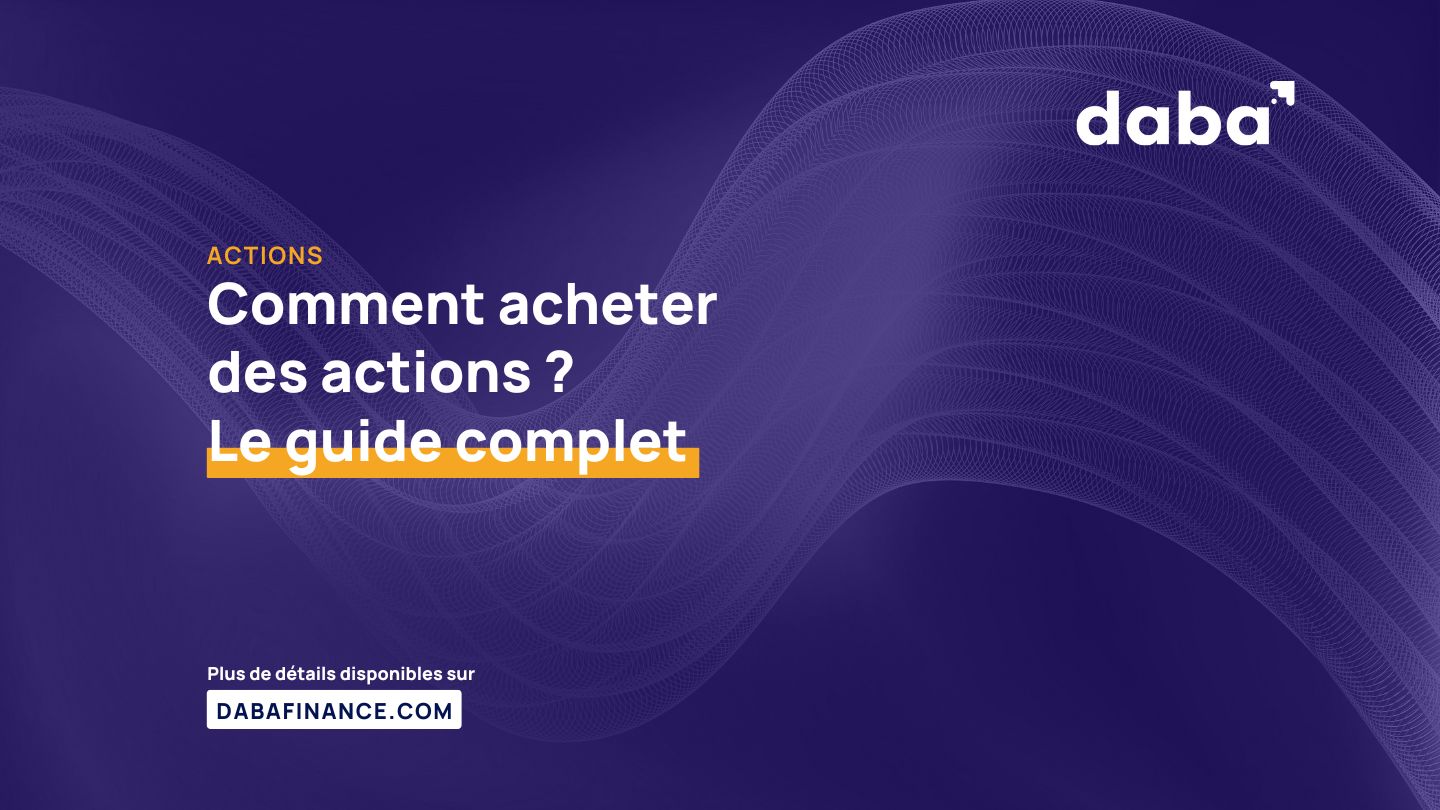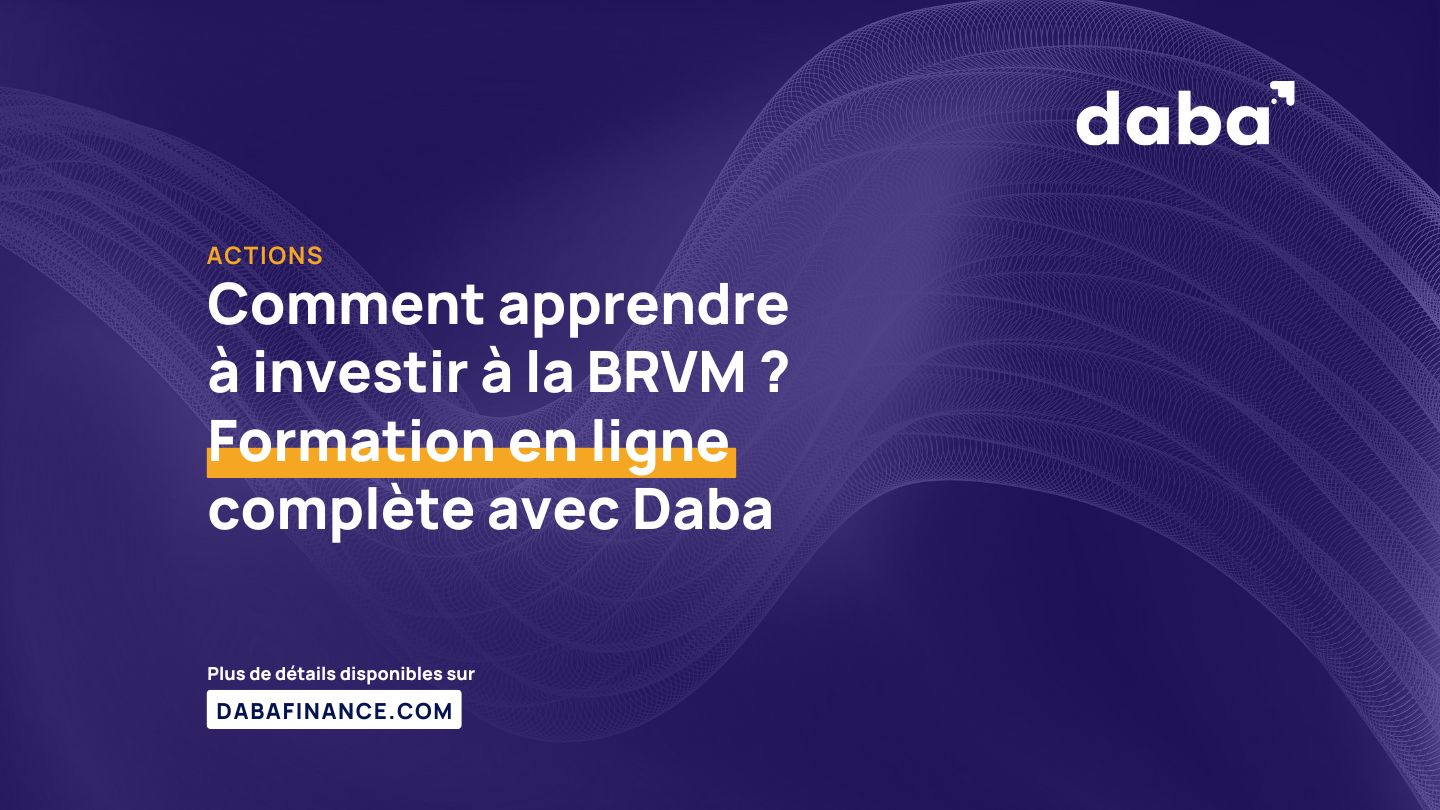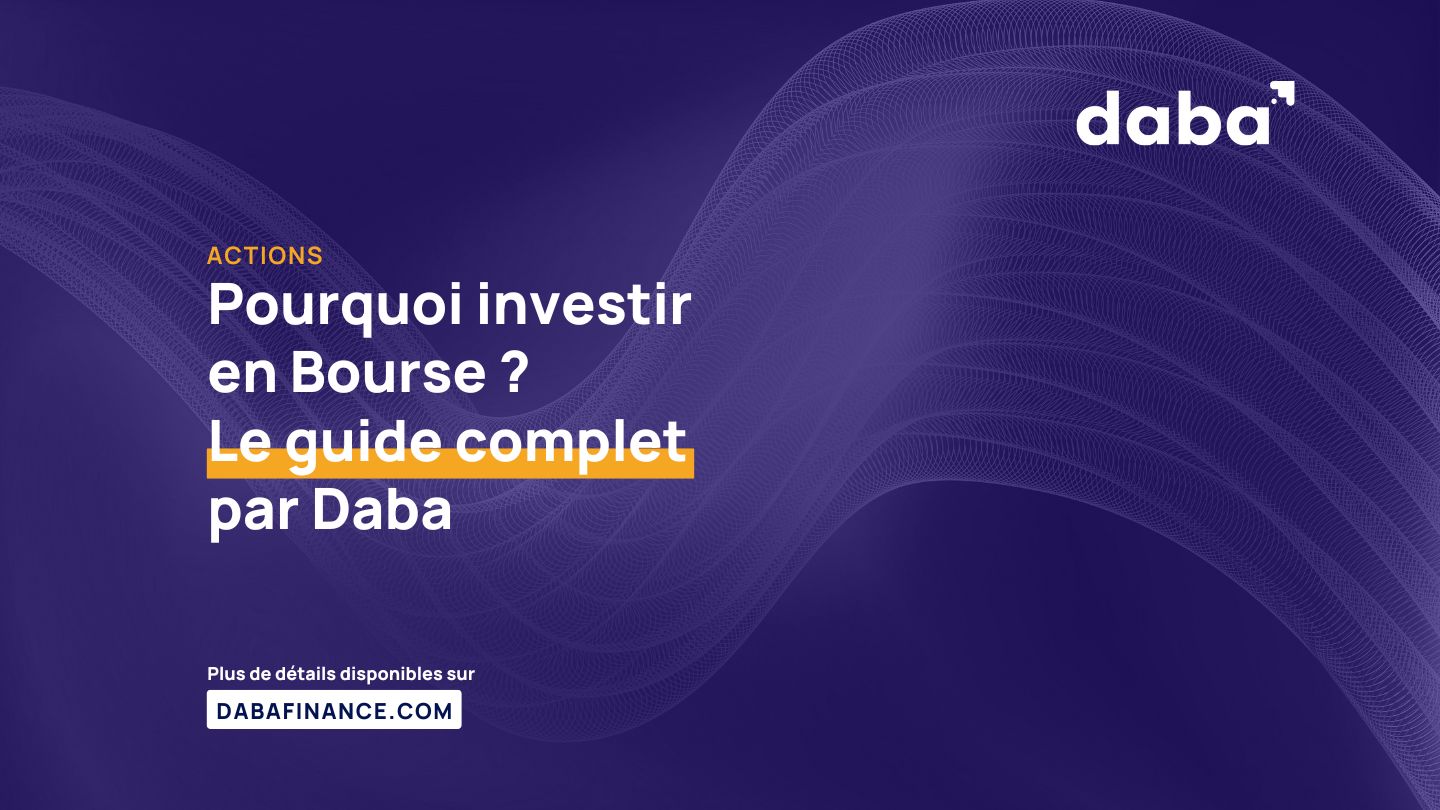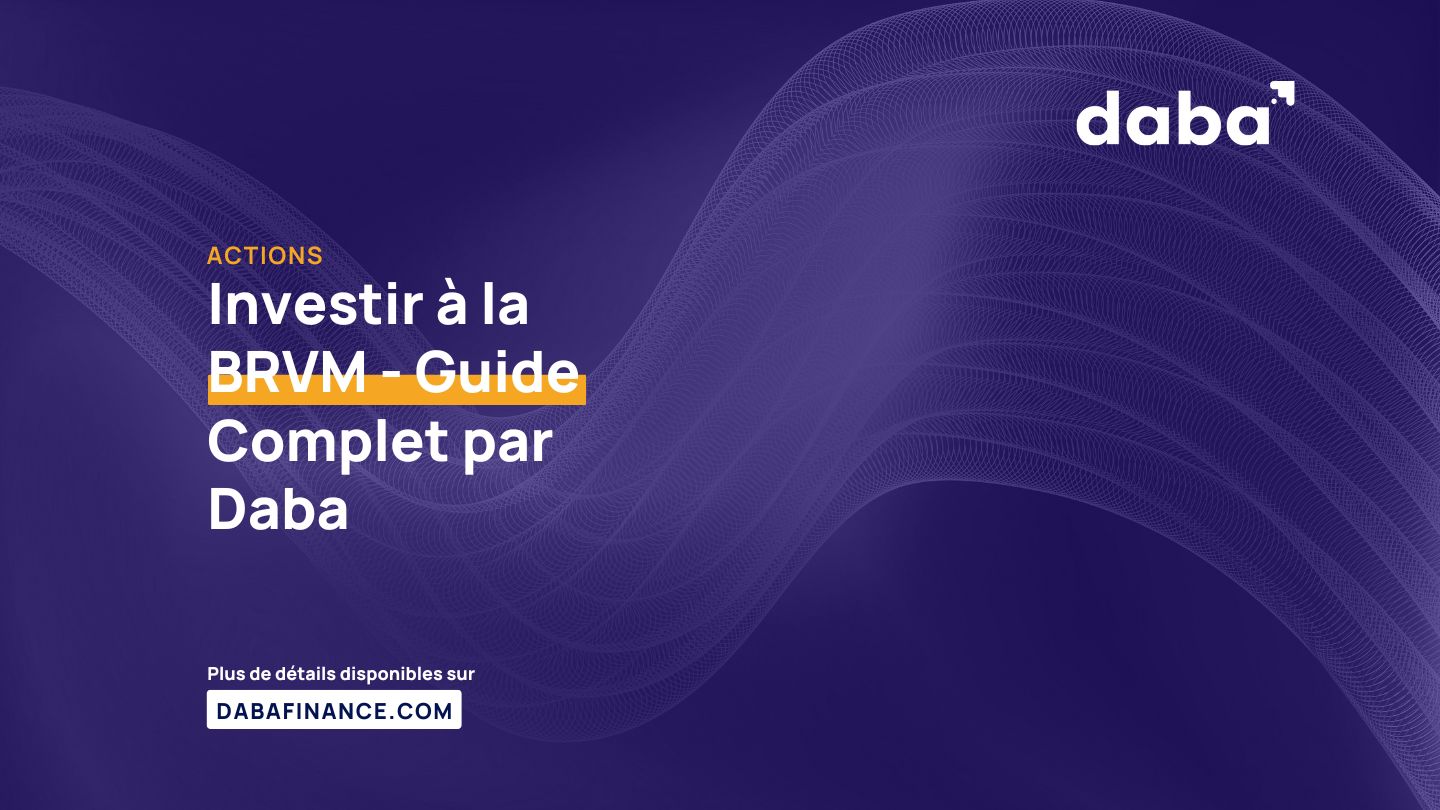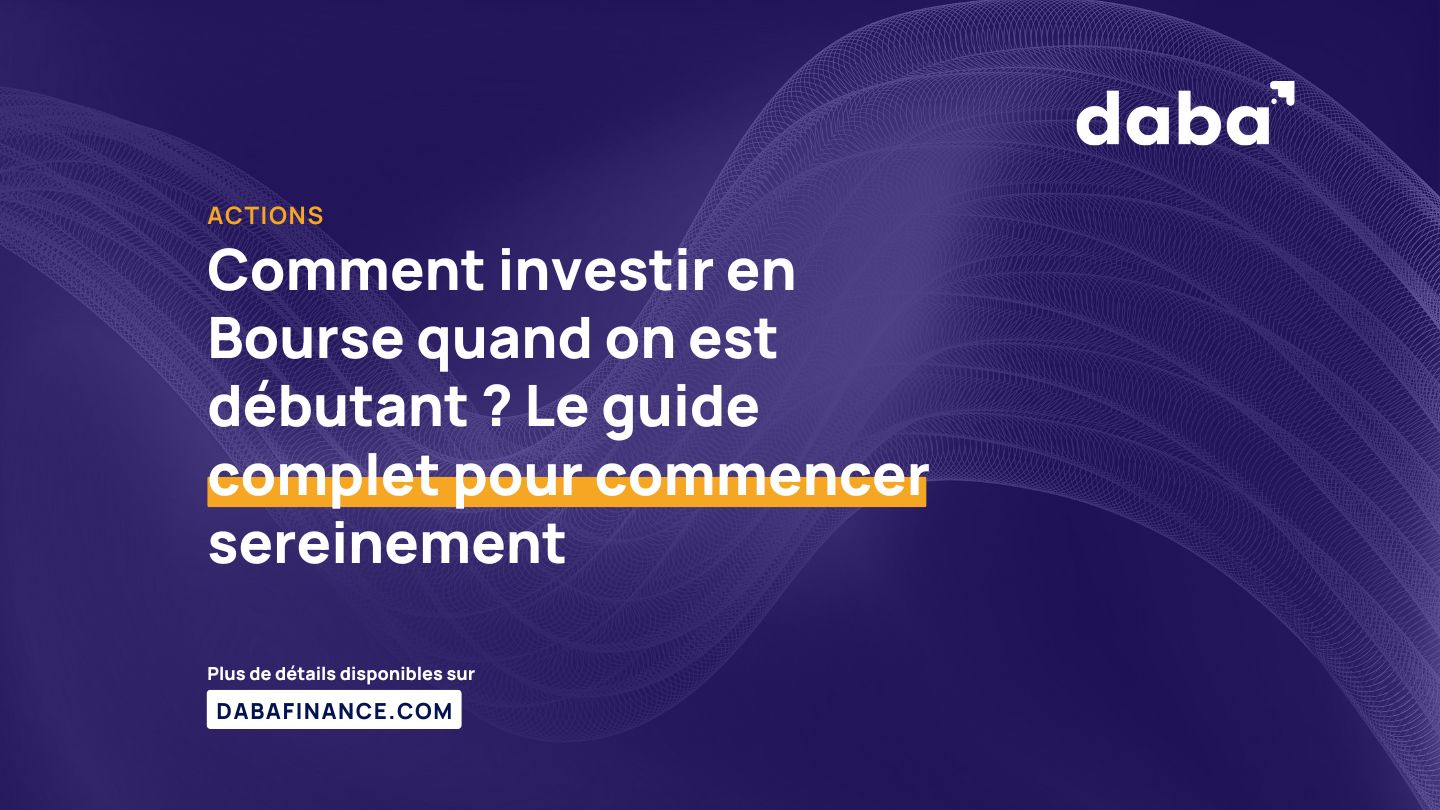L’investissement sur la BRVM (Bourse Régionale des Valeurs Mobilières) connaît un nouvel essor. Pourtant, nombreux sont ceux qui se demandent : comment trouver les meilleures opportunités sur ce marché africain unique ?
Entre valorisations attractives, dividendes généreux et croissance économique soutenue dans l’UEMOA, la BRVM regorge de pépites. Mais sans méthode ni outils adaptés, il est facile de passer à côté. Dans cet article, nous allons explorer comment identifier les vraies opportunités sur la BRVM, évaluer leur potentiel et profiter pleinement de cette dynamique – et pourquoi Daba est votre meilleur allié pour y parvenir.
Comprendre le contexte de la BRVM pour mieux investir
Avant de chercher les meilleures opportunités, il est essentiel de comprendre le terrain sur lequel on évolue. La BRVM est unique : c’est une bourse commune à huit pays d’Afrique de l’Ouest partageant la même monnaie, le franc CFA. Cette stabilité monétaire, adossée à l’euro, protège les investisseurs contre les dévaluations monétaires extrêmes qui affectent parfois d’autres marchés africains.
De plus, l’économie de la région est en plein essor, avec des taux de croissance parmi les plus élevés du continent. Côte d’Ivoire, Sénégal, Bénin, Burkina Faso… tous affichent une résilience économique remarquable malgré les chocs mondiaux récents.
Investir sur la BRVM, c’est donc parier sur une dynamique collective de croissance durable.
L’importance de l’analyse fondamentale
Débusquer les meilleures opportunités ne relève pas du hasard. C’est avant tout une question d’analyse. Et sur la BRVM, l’analyse fondamentale est votre meilleur allié.
Elle consiste à étudier en profondeur les entreprises : leur chiffre d’affaires, leur rentabilité, leur capacité à générer du cash, leur position concurrentielle et leur gouvernance. Il s’agit aussi de comprendre les secteurs porteurs : agro-industrie, télécommunications, finance ou énergie sont parmi les plus dynamiques.
Sur l’application Daba, cette analyse est facilitée : chaque entreprise cotée sur la BRVM est accompagnée de fiches synthétiques, d’analyses financières détaillées et de notes de valorisation pour aider les investisseurs, qu’ils soient débutants ou experts, à faire leurs choix de manière éclairée.
Le rôle clé de la valorisation et du potentiel de croissance
Une opportunité n’est pas seulement une entreprise solide ; c’est une entreprise solide et sous-évaluée.
Savoir évaluer le juste prix d’une action est donc essentiel. Si le marché n’a pas encore pleinement intégré la vraie valeur d’une entreprise, l’investisseur avisé peut réaliser une plus-value intéressante lorsque cette valeur sera reconnue.
La BRVM offre de nombreuses situations de ce type, notamment avec des entreprises leaders sur leur marché local, mais dont les actions restent sous-valorisées par rapport à leurs fondamentaux.
Daba Pro, l’abonnement premium de l’application Daba, fournit chaque mois des recommandations exclusives sur des actions sous-évaluées à fort potentiel, avec des analyses rigoureuses et des alertes sur les meilleures fenêtres d’investissement.
Pourquoi l’information est votre arme secrète
Sur la BRVM, comme sur tous les marchés financiers, l’information de qualité fait la différence.
Le problème, c’est que l’information boursière africaine est encore fragmentée et peu accessible. Il est souvent difficile de trouver des analyses actualisées, des rapports financiers détaillés, ou même de suivre l’actualité économique influençant les cours de la bourse.
C’est précisément pour répondre à ce besoin que Daba Finance a développé la première plateforme africaine regroupant données financières, analyses de marché et recommandations d’experts en temps réel.
Avec Daba, vous avez accès à :
- Des analyses d’entreprises cotées
- Le calendrier des dividendes
- Les nouvelles introductions en bourse (IPO)
- Les dernières actualités économiques régionales
- Des outils pour suivre vos investissements en direct
Tout ce qu’il vous faut pour détecter, analyser et saisir les meilleures opportunités sur la BRVM.
Se former pour mieux repérer les opportunités
Investir avec succès, ce n’est pas seulement accéder aux bonnes informations ; c’est aussi savoir les utiliser.
C’est pourquoi Daba a lancé l’Académie du Patrimoine : une formation en ligne accessible à tous, pour apprendre à investir intelligemment et développer ses compétences financières.
Grâce à des cours progressifs, vous apprendrez :
- Comment lire un bilan financier
- Comment analyser la rentabilité d’une entreprise
- Comment détecter une action sous-évaluée
- Comment construire et équilibrer un portefeuille
- Comment éviter les pièges émotionnels de l’investissement
En moins de 30 heures, vous serez capable de faire vos propres analyses et d’identifier les véritables opportunités sur la BRVM, sans dépendre uniquement des conseils extérieurs.
L’Académie du Patrimoine est disponible dès maintenant sur dabaacademy.com.
L’avantage de commencer dès aujourd’hui
Le meilleur moment pour commencer à investir était hier. Le deuxième meilleur moment, c’est aujourd’hui.
La BRVM est encore sous-exploitée par rapport à son potentiel. Les investisseurs institutionnels internationaux commencent tout juste à s’y intéresser. Cela signifie que les valorisations actuelles offrent encore des points d’entrée attractifs avant que la concurrence ne fasse grimper les prix.
Grâce à Daba, vous pouvez ouvrir un compte en quelques minutes, déposer à partir de 10 000 FCFA, et commencer à bâtir un portefeuille diversifié avec accès à des données de qualité professionnelle.
Trouver les meilleures opportunités sur la BRVM, un art accessible à tous
Investir avec succès sur la BRVM ne relève ni de la chance, ni du secret réservé à une poignée d’experts. Cela demande :
- Une bonne compréhension du contexte économique régional,
- Une capacité à analyser fondamentalement les entreprises,
- L’accès à une information fiable et actualisée,
- Un minimum de formation pour interpréter les données correctement,
- Et surtout, la discipline de bâtir et suivre une stratégie d’investissement sur le long terme.
Avec Daba Finance pour investir, et l’Académie du Patrimoine pour vous former, vous avez tous les outils entre vos mains pour transformer votre épargne en patrimoine solide, directement au cœur des marchés africains.
Ne laissez pas passer l’opportunité. La BRVM n’attend que vous.
Prêt à trouver vos prochaines opportunités sur la BRVM ?
📲 Téléchargez Daba sur votre mobile
🎓 Formez-vous gratuitement avec l’Académie du Patrimoine
🚀 Investissez intelligemment et faites partie de la croissance africaine
